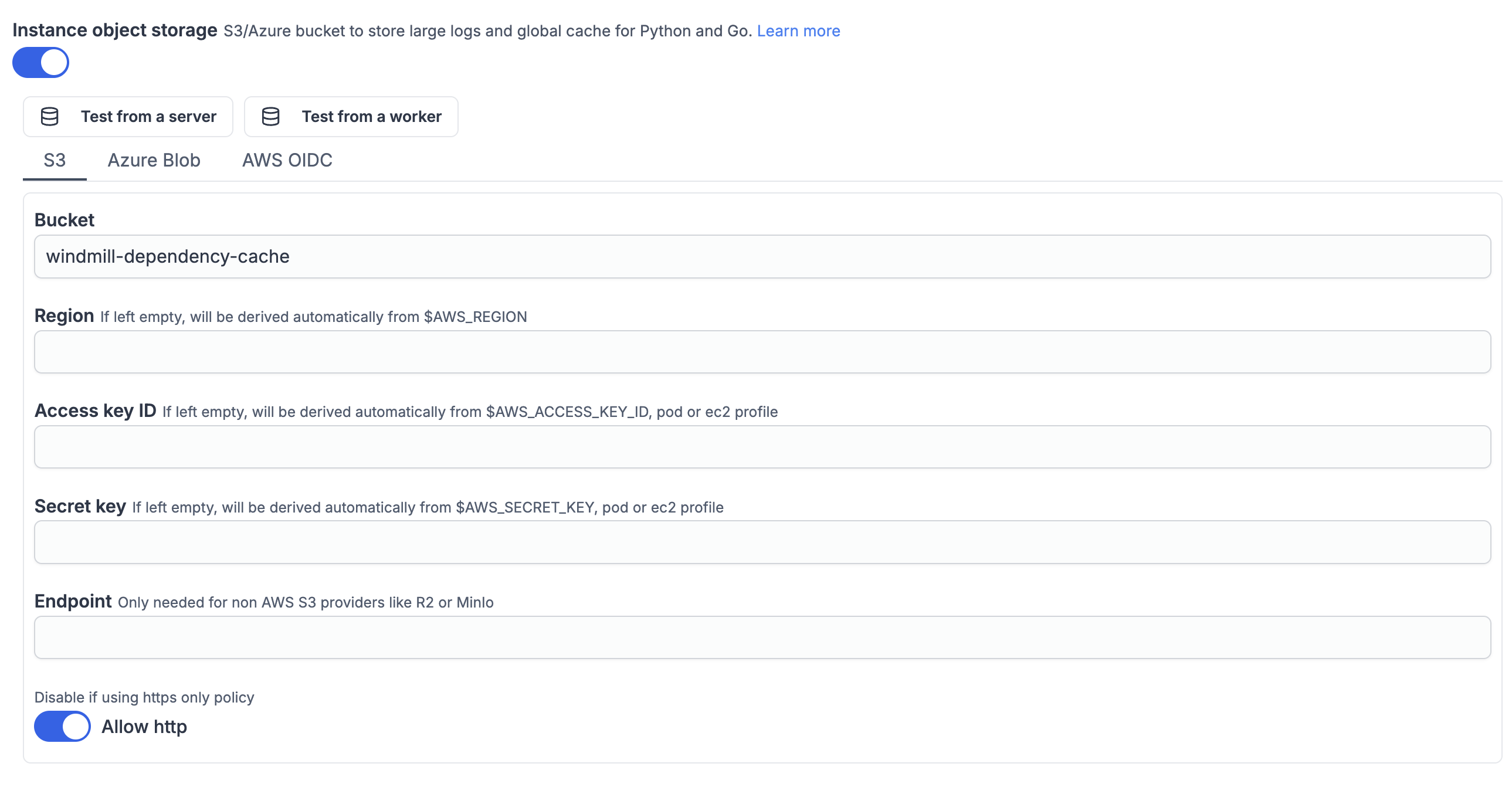Instance object storage distributed cache for Python, Rust, Go
Workers cache aggressively the dependencies (and each version of them since every script has its own lockfile with a specific version for each dependency) so they are never pulled nor installed twice on the same worker. However, with a bigger cluster, for each script, the likelihood of being seen by a worker for the first time increases (and the cache hit ratio decreases).
However, you may have noticed that our multi-tenant cloud solution runs as if most dependencies were cached all the time, even though we have hundreds of workers on there. For TypeScript, we do nothing special as npm has sufficient networking and npm packages are just tars that take no compute to extract. However, Python is a whole other story and to achieve the same swiftness in cold start the secret sauce is a global cache backed by S3.
This feature is available on Enterprise Edition and is part of the Instance object storage.
For Bun, Rust, and Go, the binary bundle is cached on disk by default. However, if Instance Object storage is configured, these bundles can also be stored on the configured object storage (like S3), providing a distributed cache across all workers.

Global Python dependency cache
The first time a dependency is seen by a worker, if it is not cached locally, the worker search in the bucket if that specific name==version is there:
- If it is not, install the dependency from pypi, then do a snapshot of installed dependency, tar it and push it to S3 (we call this a "piptar").
- If it is, simply pull the "piptar" and extract it in place of installing from pypi. It is much faster than installing from pypi because that S3 is much closer to your workers than pypi and because there is no installation step to be done, a simple tar extract is sufficient which takes no compute.
Note: For Enterprise Edition (EE) customers, S3 cache tarballs are organized and separated by Python version. This ensures that dependencies are cached and retrieved according to the specific Python version used.